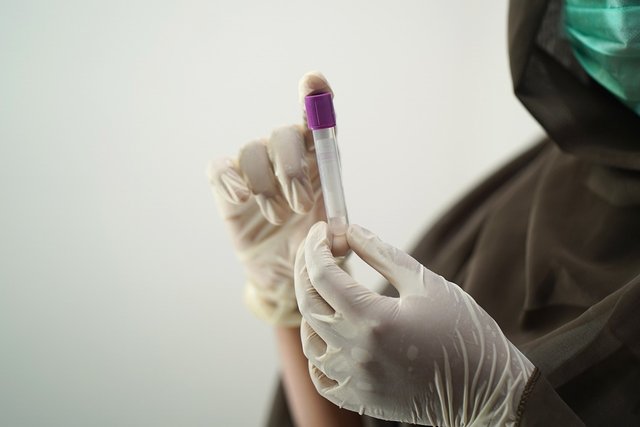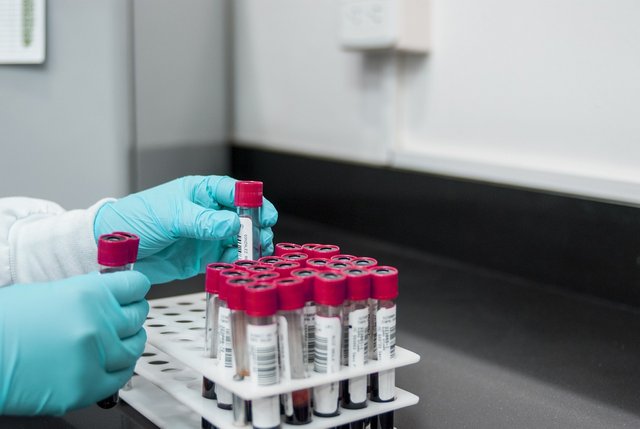Contest Alert:Gonorrhea Awareness
Assalamu Alaikum,
Hello everyone,
I am @afrinn
From #Bangladesh
Assalamu Alaikum Today I am going to participate in a nice competition.
I hope you all enjoy it. And the competition is about Gonorrhea. I have shared the basic idea so let's start
What do you know about Gonorrhea?
Gonorrhea is a sexually transmitted disease (STD) caused by the bacteria Neisseria gonorrhoeae. It is usually spread through sexual contact, and can affect both men and women. Gonorrhea primarily causes inflammation in the urethra, uterus, testicles, prostate, skin, and various parts of the genitals.
Common symptoms in a person with Gonorrhea include: painful or frequent urination, yellow or white discharge, pain or discomfort in the genitals, and sometimes throat or eye infections. In some cases, especially in women, the symptoms may be very mild or invisible, which makes the disease easy to spread.
If gonorrhea infection is not treated on time, it can cause serious health problems, such as inflammation of the uterus, testicles, and prostate, as well as infertility. In severe cases, it can spread to the bloodstream and damage underlying organs, and sometimes even cause death.
Gonorrhea can be treated, usually with antibiotics. However, if not treated properly and on time, it can become resistant, which causes medical complications. You should go to a health care facility for proper treatment.
Using condoms during sex and abstaining from multiple sexual partners is very important to prevent gonorrhea.
What are the causes, symptoms, and effects of gonorrhea?
Gonorrhea: Causes, Symptoms, and Effects
Gonorrhea is a sexually transmitted disease (STD) caused by a bacterium called Neisseria gonorrhoeae. It is mainly spread through sexual contact and can affect both men and women.
- Causes:
The main cause of gonorrhea is the Neisseria gonorrhoeae bacteria, which can cause infections in various parts of the body, such as the urethra, uterus, prostate, testicles, and parts of the throat or eyes. This bacteria is usually spread through sexual contact, especially oral, vaginal, or anal sex. In addition, it can also be transmitted from an infected mother to her newborn during pregnancy or during birth.
- Symptoms:
The symptoms of gonorrhea can vary depending on the individual's body's response to it, and sometimes the symptoms may be invisible. However, some common symptoms are:
For men:
Pain or soreness in the urethra
White or yellowish discharge
Burning or discomfort during urination
Pain or swelling in the testicles
For women:
Irregular vaginal discharge
Pain during urination
Pain or discomfort in the lower abdomen
Pain during sexual intercourse
Other symptoms:
Throat or eye infection
In an emergency, gonorrhea can cause more serious symptoms such as fever, body aches, or blood infection.
Effects:
If gonorrhea is not treated on time, it can spread to other parts of the body and cause several serious health problems:
Infertility: Gonorrhea causes an infection in the uterus or testicles, which can later lead to infertility.
Pelvic inflammatory disease (PID): In women, gonorrhea can infect the uterus, causing PID, which can make it difficult to get pregnant.
Prostate or testicular problems: In men, the prostate or testicles can become inflamed.
Blood vessel and internal organ problems: If gonorrhea spreads into the bloodstream, it can cause infections in the heart, joints, or brain.
Newborns: Gonorrhea can be passed from mother to newborn during pregnancy or birth, which can cause eye infections and other complications.
Prevention and treatment:
The main way to prevent gonorrhea is to use condoms during sex and avoid multiple partners. Antibiotics are used as treatment, but they must be taken correctly and on time.
How can we prevent and treat gonorrhea?
Gonorrhea Prevention and Treatment:
Gonorrhea is a sexually transmitted disease (STD) caused by the bacteria Neisseria gonorrhoeae. It is mainly spread through sexual intercourse, but it is possible to get rid of this disease if proper prevention measures are taken and timely treatment is given.
Ways to prevent gonorrhea:
Importance of using condoms: The most effective way to prevent gonorrhea is to use condoms during sex. Condoms help prevent bacteria from coming into direct contact between the genitals of a man and a woman. Condoms provide protection not only from gonorrhea, but also from other sexually transmitted diseases. It is also very important to abstain from sex with multiple partners or illicit sex.
Single partner or monogamous relationship: Having sex with a specific, healthy partner is the safest way to prevent gonorrhea. Abstaining from multiple partners reduces the risk of gonorrhea and other sexually transmitted diseases. The spread of this type of disease is less in monogamous relationships.
Regular health check-ups: Regular health check-ups are very important for sexually active people. Gonorrhea can often be asymptomatic in its early stages, so testing can help diagnose the disease. This helps in getting treatment at the right time before the disease spreads.
Be careful during oral, vaginal or anal sex: Using safe methods such as condoms during sex helps reduce the risk of gonorrhea infection. Condoms should also be used during oral sex, as it prevents throat infections.
Gonorrhea treatment:
Gonorrhea is treatable and is usually cured with antibiotics. Timely and appropriate treatment helps to quickly eliminate the symptoms of gonorrhea and reduces the risk of spreading the disease.
Antibiotic treatment: Gonorrhea is usually treated with multiple types of antibiotics. It is most often given as an injection or pill. The doctor prescribes the right antibiotic according to the patient's condition. Currently, some gonorrhea infections are becoming resistant to antibiotics, which can complicate treatment, but if the treatment is taken at the right dose and on time, the disease can be cured.
Second-line treatment: If the first dose of antibiotics is not effective enough or the bacteria become resistant, the doctor may suggest a stronger antibiotic in the second-line treatment.
Abstinence from sexual intercourse: During gonorrhea treatment, the patient is advised to abstain from sexual intercourse. This reduces the risk of spreading the infection to another person. The patient and his sexual partners can also establish safe sex after treatment.
Treatment of the partner: Even if the person with gonorrhea is treated alone, his sexual partner should also be tested and treated. If the partner is infected, he also needs antibiotic treatment, otherwise there is a risk of reinfection.
Complications of gonorrhea:
If gonorrhea is not treated on time, it can cause serious complications. In women, it can cause pelvic inflammatory disease (PID), inflammation of the uterus, ovaries, or fallopian tubes, which can lead to infertility. In men, it can cause inflammation of the prostate or testicles, which can reduce sexual ability.
Other serious effects of gonorrhea can include blood infections, joint inflammation, and heart problems. Moreover, in pregnant women, it can cause infection in the newborn, which can cause eye infections or pneumonia.
Conclusion:
Gonorrhea is a preventable and treatable disease. Proper healthcare and awareness can reduce the risk of gonorrhea infection and help increase the chances of a patient recovering quickly. Condom use, regular health check-ups, and treatment of partners are important steps to prevent gonorrhea.
Why is it important to spread awareness about sexually transmitted diseases (STIs)?
Sexually transmitted diseases (STIs) are infections that are usually spread from one person to another through sexual intercourse. These diseases, such as gonorrhea, syphilis, HIV, hepatitis, chlamydia, etc., not only cause physical harm, but also affect social and mental health. Therefore, spreading awareness about STIs is very important.
Help in health protection:
By increasing awareness about STIs, people can be vigilant about protecting their physical health. In this case, it is possible to identify the symptoms early and get timely treatment to prevent serious complications. For example, gonorrhea or syphilis, which are easily treatable with antibiotics, if not detected on time, can cause problems in pregnancy or infertility.
Preventive measures:
Most sexually transmitted diseases are preventable through condoms or other protective measures. Increasing awareness makes people understand the importance of adopting safe methods during sex. Not using condoms or having unprotected sex can increase the spread of STIs. Raising awareness, especially among young people, can increase attention to safe sexual practices and help them develop healthy relationships.
Social impact and psychological support:
Awareness about STIs can help reduce misconceptions, stigma, and feelings of shame. Many people feel uncomfortable talking about STIs, which can lead to them not seeking treatment. Awareness can help break down these psychological barriers and encourage people to take care of their health.
Pregnancy and newborn health:
STIs can also have serious effects during pregnancy. Some STIs, such as syphilis or chlamydia, can be transmitted from mother to child during pregnancy and can cause birth defects or birth defects in the newborn. Awareness about STIs can encourage pregnant women to get tested and receive treatment.
In summary:
The spread and impact of sexually transmitted diseases is a major health problem worldwide. Spreading awareness about STIs, providing accurate information and education is helpful in keeping people safe and reducing the spread of such diseases. By increasing awareness, it is possible to control such diseases through safe sexual behavior and proper treatment.
Thank you all for reading my post |
|---|
I would like to invite some of my friends to this contest. They are,
@saintkelvin17 @aviral123 @fannyescobar @radjasalman @maxpro @memamun @fomboe
Thank you for reading my blog.
Thank you for reading my blog.
Thank you
| Photography | Me |
|---|---|
| Location | Bangladesh 🇧🇩📷 |
| Device | OPPO |
From #bangladesh



My Twitter promote link
https://x.com/afrinn220846/status/1909302124913344638?t=nodgELL2PJNquy6zUvZSSg&s=19